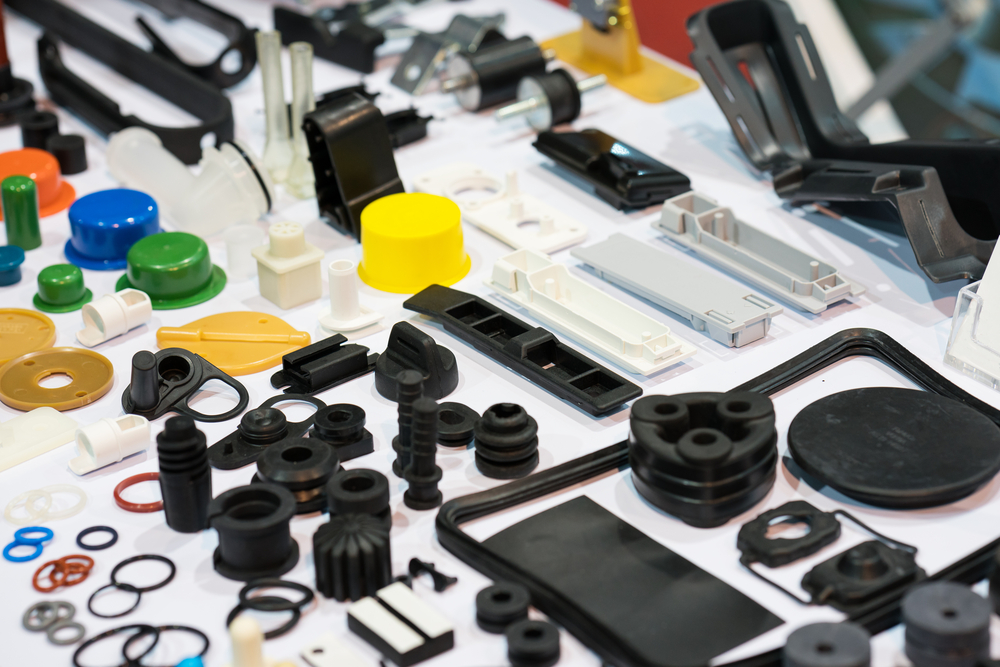- Plot No 1912, Sector 4, Gurugram 122001
- +91 9810-925-615
- contact@shribalajisynthetics.com
The Science Behind Plasticizers: Adaptability, Efficiency & Innovation
admin
June 18, 2025
Plasticizers

The Science Behind Plasticizers: Adaptability, Efficiency & Innovation
Have you ever wondered how materials like rubber, plastic, or even the dashboard in your car stay soft and flexible? The answer lies in a group of special additives called plasticizers.
Without plasticizers, many common materials would be too hard, brittle, or even unusable. These unsung heroes play a crucial role in making materials more flexible, durable, and useful — across industries like automotive, footwear, packaging, construction, and more.
With years of experience in the rubber and chemical industry, Shri Balaji Synthetic provides trusted materials that help many industries grow while improving everyday life.
What Are Plasticizers?
Plasticizers are chemical additives that make stiff materials like PVC and rubber soft and flexible. Think of a door hinge that squeaks — once you apply oil, it moves smoothly. Similarly, plasticizers “loosen” the tightly packed molecules in rigid plastics and rubbers, allowing them to bend without breaking.
They are most commonly used in:
- PVC (Polyvinyl Chloride)
- Rubber compounds
- Cellulose products
- Even concrete and paints
Without plasticizers, everyday products like shoe soles, flexible pipes, car interiors, and food packaging would crack or snap instead of bending or stretching.
Its wide use in furniture, construction, footwear, electronics, and cars shows how helpful it is. It also saves energy and creates low carbon emissions, making it an eco-friendly choice.
How Do Plasticizers Work?
Every material has something called a glass transition temperature — the point where it goes from hard to soft. Plasticizers lower this temperature by mixing with the material and creating space between its molecules, allowing it to remain flexible even in cold or high-pressure environments.
This means plasticized materials:
- Stretch more easily
- Resist breaking under pressure
- Remain soft in extreme temperatures
For example, in cars, this allows seats and dashboards to stay crack-free. In footwear, it helps soles flex as you walk. And in wires, it keeps insulation from becoming brittle.
Types of Plasticizers
There are two main categories of plasticizers:
1. Phthalate-Based Plasticizers
These are commonly used in industrial products like:
- PVC flooring
- Automobile trims
- Electrical wires
Examples include:
- DINP
- DBP
- DEHP
2. Non-Phthalate Plasticizers
These are safer alternatives, especially for:
- Children’s toys
- Medical items
- Food packaging
Examples include:
- DOA (Dioctyl Adipate)
- ATBC (Acetyl Tributyl Citrate)
These new-age plasticizers provide the same flexibility as older versions but with fewer health risks, making them ideal for sensitive applications.
Where Are Plasticizers Used?
Plasticizers are used in many industries to enhance flexibility, softness, and durability. Here are some key applications:
1. Automotive Industry
- Dashboards & Seat Covers: Stay flexible and crack-free in hot and cold climates.
- Rubber Components: In tires and seals, plasticizers improve grip, stretch, and lifespan.
2. Footwear & Fashion
- Soles & Insoles: Plasticizers keep them soft, bouncy, and long-lasting.
- Synthetic Leather: Adds softness and comfort while staying tough over time.
3. Packaging & Films
- Food Wraps: Remain clingy and elastic.
- Flexible Bottles: Don’t crack or tear with use.
4. Construction
- Cables & Pipes: Stay bendable during installation and daily use.
- Sealants & Adhesives: Gain better flow and bonding strength.
5. Healthcare
- IV Bags, Tubes & Gloves: Stay flexible, safe, and resistant to chemicals.
Plasticizers are small additives with big impact. They are vital in transforming rigid raw materials into flexible, durable, and useful products across countless industries. From car interiors and footwear to packaging and healthcare — plasticizers help materials work better and last longer.
At Shri Balaji Synthetics, we specialize in high-performance plasticizers and rubber chemicals that meet today’s industry demands for efficiency, adaptability, and innovation. With years of experience and a deep understanding of polymer chemistry, we offer solutions that help shape the products of tomorrow.
Looking to improve the flexibility and performance of your materials? Let Shri Balaji Synthetics be your trusted partner in innovation.
This means plasticized materials:
- Stretch more easily
- Resist breaking under pressure
- Remain soft in extreme temperatures
For example, in cars, this allows seats and dashboards to stay crack-free. In footwear, it helps soles flex as you walk. And in wires, it keeps insulation from becoming brittle.
Tags :
Plasticizers
Share This :
Recent Posts
-
 FKM Rubber: Reliable Material for Tough Industrial Applications03 Jul 2025
FKM Rubber: Reliable Material for Tough Industrial Applications03 Jul 2025 -
 The Role of Rubber & Polymer Materials in Automotive Components30 Jun 2025
The Role of Rubber & Polymer Materials in Automotive Components30 Jun 2025 -
 The Science Behind Plasticizers: Adaptability, Efficiency & Innovation18 Jun 2025
The Science Behind Plasticizers: Adaptability, Efficiency & Innovation18 Jun 2025 -
 How Rubber Materials Are Shaping the Future of Industries18 Jun 2025
How Rubber Materials Are Shaping the Future of Industries18 Jun 2025
Categories
Have Any Question?
Get in touch for quality materials, expert service, and support.

